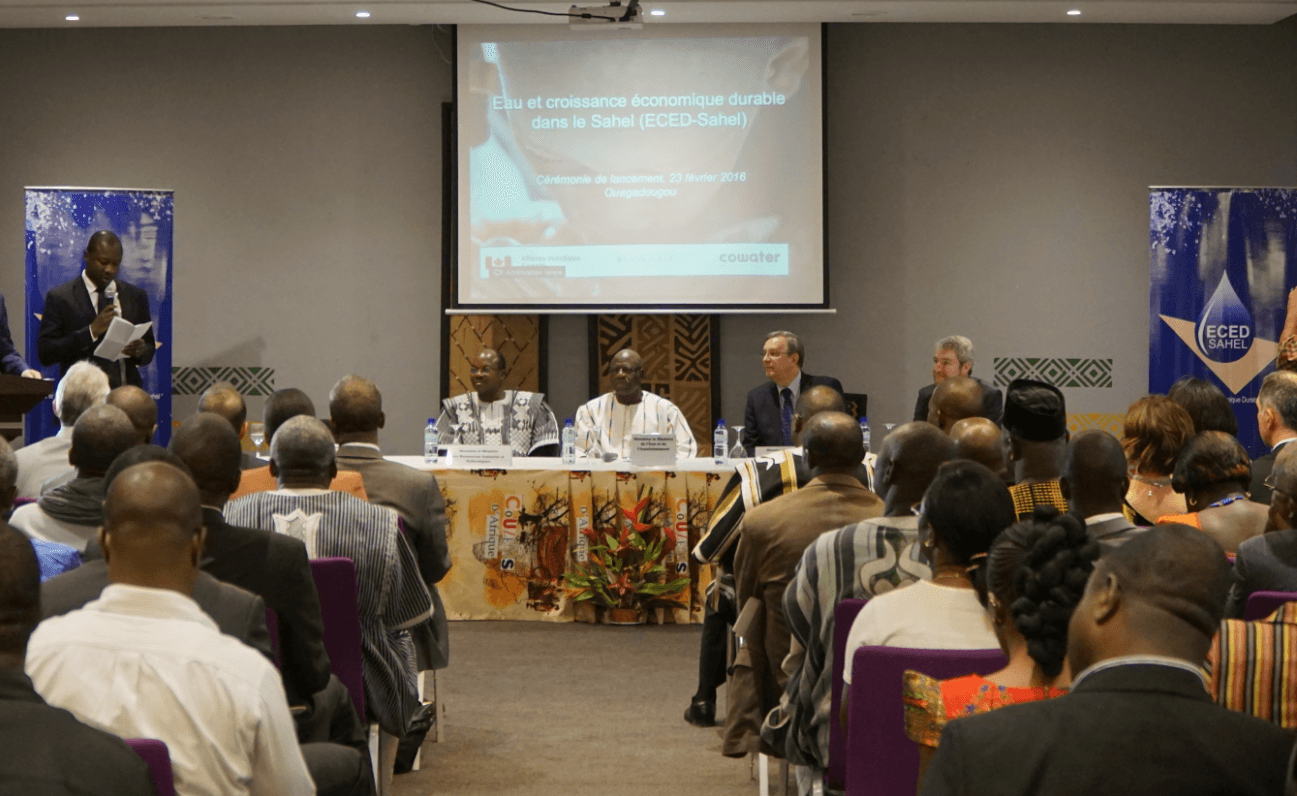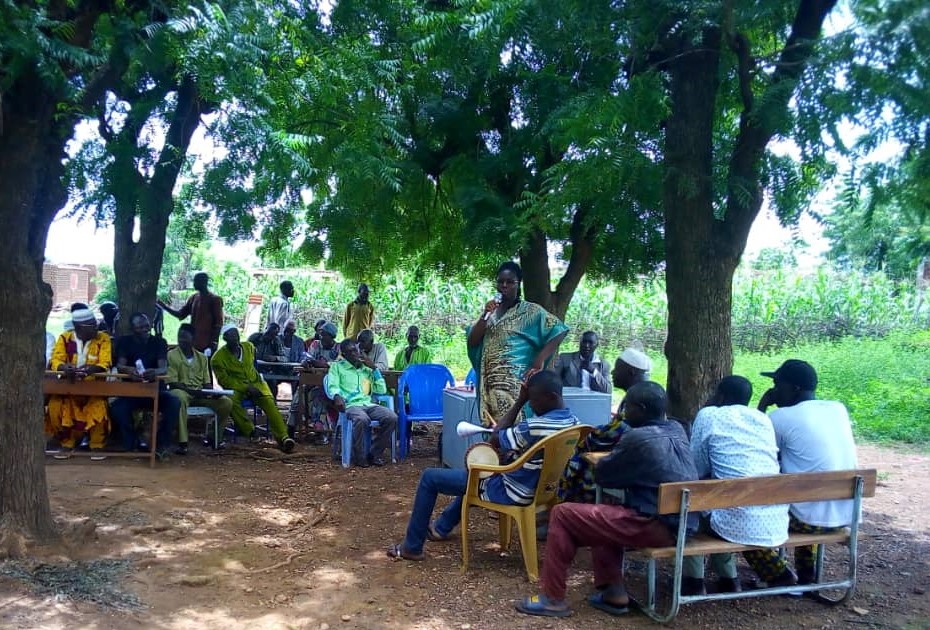
Mining community development: Thinking broadly
Context
Mines and communities do not choose each other. Geology and commercial sustainability impartially determine the location of mines, without consideration for the presence or capacity of local communities. And while mines do not choose their communities, these do provide their consent (Free Prior and Informed Consent) but have no choice regarding the company itself. Often remote and impoverished, communities that are present when a mine breaks ground are rarely equipped to benefit from new economic opportunities. Training, a network of SMEs, basic infrastructure and access to finance are generally lacking. While a mining company can address some of this through direct support to the population, this is generally seen as insufficient.
Our experience with three public-private social performance initiatives has helped us learn how to address these unique challenges. By applying systemic solutions, with commercial partners, at a regional level and with development partners, we have been able to reach far greater impact than what could have been achieved with a narrower vision for the same budget. In vocational training, water and renewable energy in both Mali and Burkina Faso, we have identified key principles to thinking more broadly about improving the well-being of communities.
Common Challenges
Mining operations often take place in remote and underserved areas of a country. For example, in Mali, much of the gold sector is centred around Kéniéba, an isolated locality at the border with Burkina Faso and Senegal. Populations generally rely on subsistence farming, with little access to public services (such as health or education) and have limited economic prospects. Therefore, the construction of a mine considerably raises economic aspirations and expectations in terms of services. The association with precious metals (for example gold in Mali) and the disruption caused can compound the expectations of a community, who have a sense of ownership over the land and even the minerals mined.
A mine may deploy social services proportionate to the population size prior to construction, however mines can lead to significant migrant inflows. Towns can quadruple in size following the construction of mine. Such was the case of Fungurume in the Congolese Copperbelt that went from 30,000 inhabitants in 2005 to more than 100,000 by 2015. A poor harvest, insecurity or simply the promise of employment can be sufficient for a family to choose to move to a mining town. In addition, artisanal miners can be attracted by the prospect of exposed mineral deposits. However, as many find out, a mine generally generates no more than a few thousand skilled jobs, which locals are ill equipped to take on. This dynamic social environment is a challenge for social investments. The more attractive a town becomes to migrants; the more schools and clinics are needed. Whether they are managed by the company or the community, social performance budgets lack the capacity to scale according to needs, especially during the construction phase and the following years when mines operate at a loss.
Economic solutions can therefore be seen as more attractive. By increasing incomes of members of the community, these can sustainably fund improvements for the wellbeing of the community. Local procurement has garnered substantial attention in recent years, as a mine typically spends 50-65% of its budget on operating and capital expenditures. This represents hundreds of millions in procurement expenditure in countries such as Mali.
Nevertheless, local procurement presents substantial challenges. Local firms often do not have the capacity to provide the requisite goods and services at scale, nor at the standard and in the timescales required. The potential of local procurement should also not be overstated. A pilot study on mining procurement by Germany’s BGR (Federal Institute for Geosciences and Natural Resources) highlights that 40% of Mali’s USD529m procurement spending in 2017 was on fuel for electricity generation.[1] Another 55% is spent on reagents, explosives, lubricants, spare parts and grinding material. There is little expenditure that can be directed to a local community, for example catering or transport services.

Thinking broadly
The challenges of community development require a more integrated and sustainable approach, that both recognises the scale of the task and the limitation of the means available. Cowater has worked actively in Mali and Burkina Faso to design and implement systemic solutions to foster community development in the gold sector. In doing so we have established four ways of thinking differently to improve the wellbeing of communities.
Think systemic
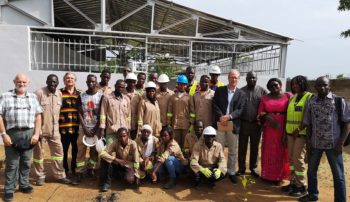 Sustainable economic development cannot be achieved through a narrow focus on a single component. This approach is largely used in international development, through market systems development or value chain development programmes. For example, to increase agricultural productivity farmers should be able to purchase inputs from a commercial provider, access finance to fund the purchase and sell to a buyer at a fair price. Furthermore, our experience shows government, at both the local and national level, has a role to play in shaping regulation and providing the necessary accreditations.
Sustainable economic development cannot be achieved through a narrow focus on a single component. This approach is largely used in international development, through market systems development or value chain development programmes. For example, to increase agricultural productivity farmers should be able to purchase inputs from a commercial provider, access finance to fund the purchase and sell to a buyer at a fair price. Furthermore, our experience shows government, at both the local and national level, has a role to play in shaping regulation and providing the necessary accreditations.
Our AFECK project in Mali trains the youth of the Kéniéba region in key technical skills, but it also works with the government to ensure their skills are certified allowing the mine to offer them job opportunities and local SMEs to develop their entrepreneurship skills. Co-financed by B2Gold and Global Affairs Canada, 767 local youths were trained in 2018, with 52% of them having found employment in the months after.
Think commercial
Poverty does not preclude enterprise and economic development requires sustainable business models. Mining companies can find commercial partners to address the needs of their communities. These companies can provide jobs and services that will form the basis for the community’s long-term prosperity.
Partnering with small and large enterprises in other fields can be done both through the mine’s core business and through its sustainability programme. When addressing local procurement from smallholder farmers, out-grower schemes can be developed with agricultural inputs providers and caterers, to ensure farmers receive support that is commercially viable. In such cases, a mining company can set the requirements for its suppliers and proactively support such collaboration, by investing some initial capital if need be. Similarly, a mine can also support businesses with no relevance to its supply chain, but that can be beneficial to its community.
In Burkina Faso, our ECED Mouhoun project works with solar lamp providers to expand into poorly electrified areas. The project increases awareness of the benefits of solar lamps and provides a small subsidy to retailers who sell in the area, proportional to their sales. As a result, retailers can invest into the area (in a store, marketing team, maintenance team), while the community benefits from a cheaper and more reliable source of light and electricity. ECED Mouhoun, co-financed by Windiga Energy, the Rural Electrification agency of Burkina Faso and Global Affairs Canada, aims to provide electricity to 18,000 rural Burkinabe through this model.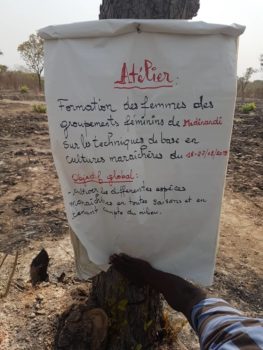
Think regional
Narrow geographical focus can be counterproductive, encouraging migration from nearby communities. Community development should be ambitious in scope and seek to address the challenges of the broader area around a mine. Issues such as access to water, access to electricity, agricultural productivity and transport do not limit themselves to the confines of a mining concession. This can mitigate the tendency to migrate, address grievances along transport corridors and foster goodwill with public sector partners.
Our ECED Sahel project, co-financed by IAMGOLD, the One Drop Foundation and Global Affairs Canada, is rolling out clean drinking water infrastructure for 83,000 people living in the Sahel region of Burkina Faso. This approach has ensured that communities near the mine are not the sole beneficiaries of the interventions. It has also that attracted co-funding partners such as Global Affairs Canada and One Drop and achieved economies of scale during its implementation.
Think partnerships
This regional vision is essential to mobilising partners. While mines have the least funds to spare when it matters the most (the construction phase), mines are also in a unique position to mobilise funds from other actors, who share their objective to see development in the areas they work. Despite the sensitivities attached to public-private partnerships, notably reputational, donor organisations (such as the government of the mine’s home country or multilateral agencies) have a strong stake in community development.
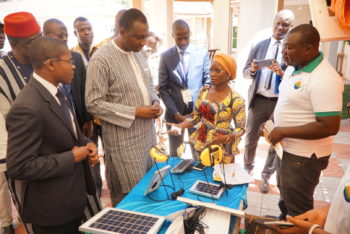 By investing in roads, energy and providing some economic opportunities, mines can be seen as transformational actors by development agencies. Although not all are sympathetic to the sector, some see the potential to combine forces to achieve more ambitious goals. While mines may see themselves as raising public funds, the perception is mirrored in donor agencies who are keen to ‘leverage’ private funds.
By investing in roads, energy and providing some economic opportunities, mines can be seen as transformational actors by development agencies. Although not all are sympathetic to the sector, some see the potential to combine forces to achieve more ambitious goals. While mines may see themselves as raising public funds, the perception is mirrored in donor agencies who are keen to ‘leverage’ private funds.
****
At Cowater, we pride ourselves in bringing together the aspirations of our clients with thirty years of experience in international development, to foster partnerships that benefit communities systemically, sustainably and at scale. Our work focuses on empowering communities in some of the most remote and impoverished areas of the world, with sustainable and systemic solutions to improve their wellbeing. We bring our knowhow from thirty years of implementing ambitious programmes for development agencies, to the specific challenges that community development in mining areas present.
Our water programme ECED Sahel in Burkina Faso was designed with IAMGOLD and raised more than C$13m from Global Affairs Canada and C$2.25m from the One Drop Foundation, with IAMGOLD contributing C$2.25m itself. Our vocational training project AFECK in Mali was designed with B2Gold and raised C$5.25m from the Canadian government (B2Gold contributes C$1.75m). Our solar energy ECED Mouhoun programme was elaborated with Windiga Energy, which funded the design, while the programme has secured almost C$18m in funding from Global Affairs Canada and Burkina Faso’s rural electrification agency.
By thinking broadly and understanding the ramification and interconnectedness of social development interventions, systemic and sustainable change for mining communities can be achieved.
[1]https://public.tableau.com/profile/extractivesanddevelopment#!/vizhome/ProcurementDemandModelWestAfrica/ProcurementDemandModelWestAfrica
Related Content
Développement des communautés minières: Une réflexion plus large
Contexte Les mines et les collectivités ne se choisissent pas mutuellement. La géologie et la viabilité commerciale déterminent de façon impartiale l’emplacement des mines, sans tenir compte de la présence […]
325 new houses for the new village of Fadougou in Mali
The Minister of Mines and Oil, Mrs. Lelenta Awa Baba Ba, and her colleague from Urban Planning and Housing, Mr. Moustapha Sibide, were at the ceremony, along with the Ambassador […]





